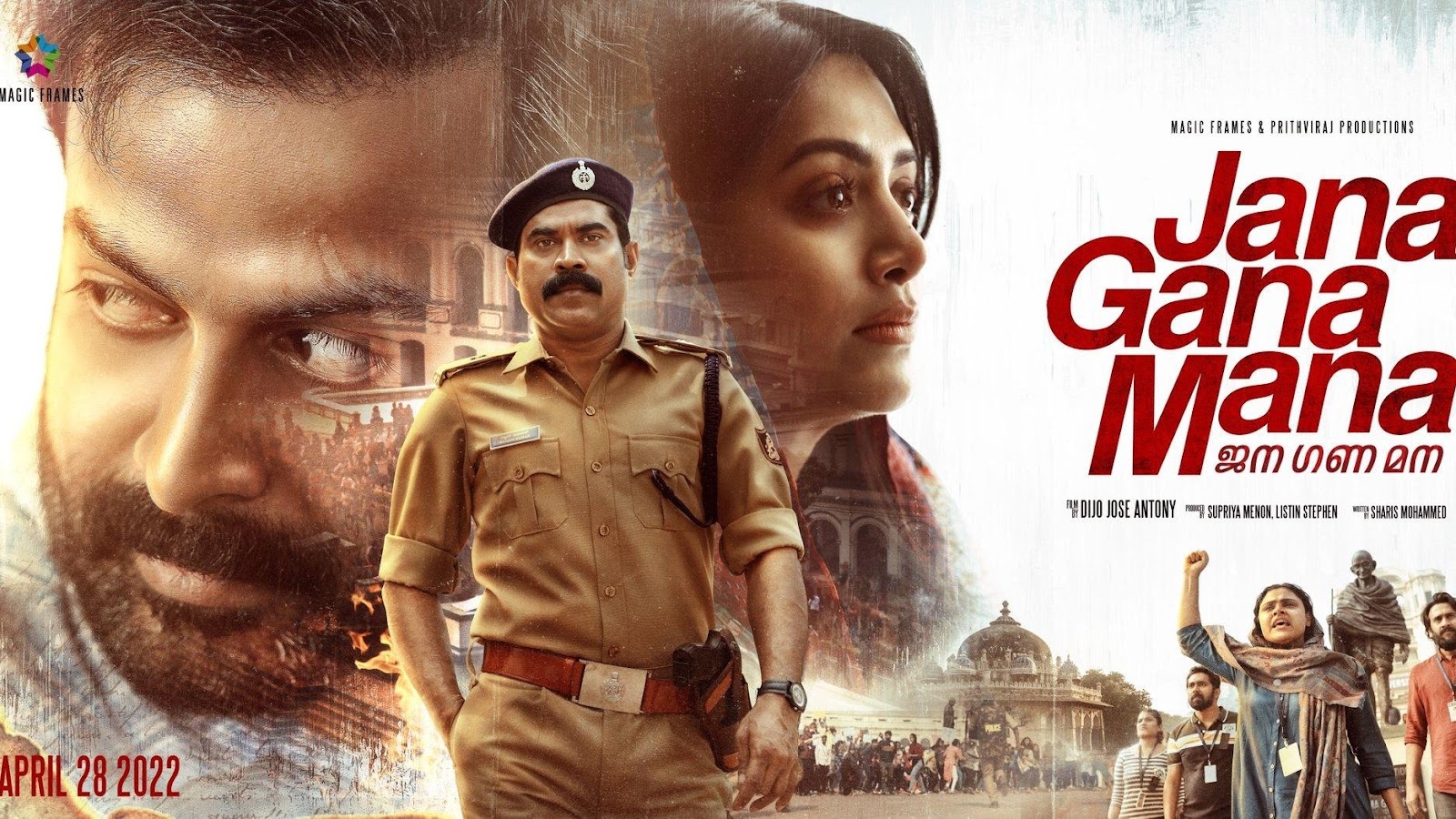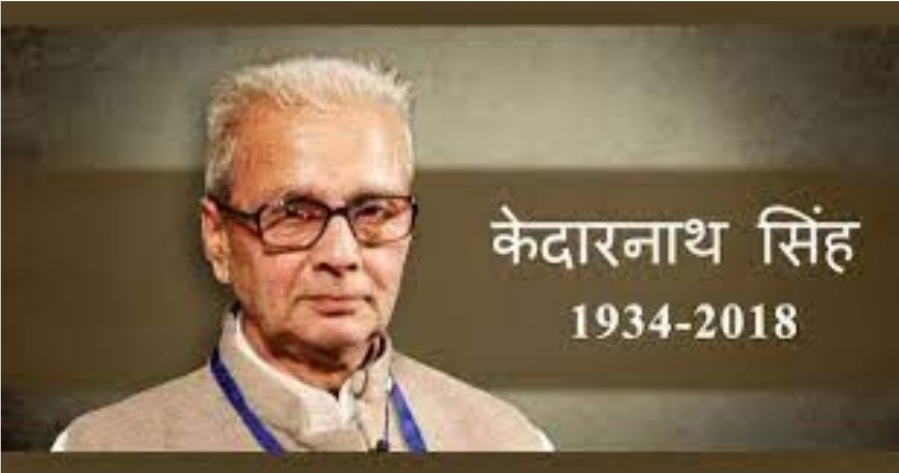Hegemony,Subjugation and Revolution:An Analysis of the politics behind Dalit stigma and its normalcy with reference to 'Jana Gana Mana' by Dijo Jose Antony
Caste has always been a subject of debate and discussion in academic and theatrical realms and the reasons behind this can be social, political or commercial. Nevertheless, the perpetual contemporaneity pertaining to this topic is, indubitably, owing to the discrimination and stigma associated with caste. Fortunately, the young, inquisitive bunch of artists and writers have come forward to question the normalcy with which Indians perceive the ramifications of Caste System. Jana Gana Mana by Dijo Jose Antony is one such attempt to portray, question and reveal the normalcy with which democratic society penalizes dalits. This movie also questions the rationale behind attributing innate criminality to this sect based on their physical, academic and social background. Though the movie discusses various issues like injudicious and unwarranted encounters, rebellious campus mobs, political manipulation and intervention in social issues and falsified media reports, this paper attempts to focus on the institutionalized murders of dalits and the exploitation and harassment vented out against Dalit scholars by their research supervisors.
This social and political critique questions the truth value of the ‘truth’ propagated by media and also brings into question the propriety of the executive to perform the task of the judiciary and legislate laws. This movie also looks into the political reasons behind branding a section of society as criminals before even being convicted by the court. The plotline of this Prithviraj-Suraj starrer takes us along the political manipulation of the death of Prof. Saba Mariam and the resultant mob of her students. ACP Sajjan Kumar, the officer appointed to investigate this ‘sensational’ case makes headlines by terminating the accused and the intricate reasons behind the brutal murder in an encounter. The entire nation lauds his sincerity and commitment until the Human Rights Commission registers a case against Sajjan Kumar which seemingly would get dismissed by the court.
The movie makes a volte-face when the Defense Counsel Aravind Swaminathan appears in the court on the behalf of the assassinated ‘culprits’ and unravels the seemingly complicated mesh of questions regarding the hasty encounter of the four accused who were not even produced in the court of Law. The Defense counsel also inquires into the reasons behind sensationalizing trivial news to overshadow a few prominent ones. The movie also casts light upon how Dalits are made scapegoats for the politicians’ thirst of power. This film also discloses how ‘truth’ is fabricated by the ruling and proliferated by the media to beguile the public. The second half is primarily dedicated to Dalit cause by overtly representing the institutionalized murders of Dalits and the exploitation of Dalit scholars by their research supervisors. Political Hegemony and Dalit Rebellion are dealt with at length in this movie.
In The Cracked Mirror, Gopal Guru wrote about the ways in which mainstream theoretical realm excludes Dalits from academic arena by branding them as intellectually poor and polemically incompetent. Reservation is one of the major weapons used against Dalit scholars to torment them and cross examine their intellect. In Annihilation of Caste, Ambedkar asserts that , “The higher castes have conspired to keep the lower castes down.” Besides being discourteous towards Dalits, upper castes also lay impediments on the path of Dalit scholars who strive to succeed. In his Caste Matters, Dr.Suraj Yengde voices the problems faced by Dalit scholars in Indian Academia. Kancha Ilaiah in his Buffalo Nationalism also talks about the process through which Brahminical Ideology conditions every dalit into believing his very existence to be a curse. This ties every dalit to eternal slavery and impels him to be subservient to the upper caste hegemony. Revolutions are contained with murders and pogroms.
Kancha Ilaiah in his Why I Am Not A Hindu, writes at length about how Dalits are obliged to be loyal hanumans to upper caste Ramas. He delineates the ways in which Political parties employ Dalit Basti dwellers to perform brutal, inhumane acts for them and wash their hands off the responsibilities. In India, being a Dalit entails being an uncultured savage, the scapegoats get convicted without even encountering a proper trial. These injudicious executions of the executive are justified on the grounds of the poor social and academic backgrounds of the accused. Even a Dalit’s physical appearance is taken as a yardstick to measure his morals and scholarship. Dr.Yengde in his Caste Matters, described the unhygienic and immoral situations of Dalit Bastis and also recounted the anti-social influences which framed the emotional and mental constituents of a Dalit child.
The court scene in the second half of the movie begins with the impassionate speech of the special prosecutor, Mr.Iyer who pronounces the four accused as cold-blooded murderers and brutal rapists. Mind You, not one of them was produced in the court and declared a culprit. Besides, elsewhere the same lawyer argued that the allegations against an MLA who raped a Dalit girl were mere accusations since he was not convicted by the court of law. Later, the Defense Counsel, Mr.Aravind Swaminathan raises a thought-provoking question as to what decides the criminality of an accused to which the Judge-The incarnation of Justice, blurts out that their physical features can hint at their anti social character. This is how indoctrination works in India. The Special Prosecutor alleged that the four accused have committed robbery and smuggling therefore, they must have committed the murder. Perhaps, the allegations might be true, yet none bothered to think of the situations which prompted them to commit those crimes. Dr.Yengde in his Caste Matters, recounts how poverty and hunger at home instigate basti dwellers to take up anti-social activities.
Earning a Doctorate is considered to be the greatest accomplishment in the life of any scholar. At times, one has to endure a series of physical, mental and emotional harassment to get a ‘Dr.’ prefixed to one’s name. The scholars live through these hardships only to get a signature from their Research Supervisors. The situation gets worse when a Dalit scholar is guided by an upper caste supervisor. These guides who should have been facilitators of progress, become Ravens predating on the intellect and scholarship of the scholars. Since Ph.D courses have specific durations scholars overextend themselves to finish the research and submit the thesis within the given time. Dalit scholars can not thrive in India easily which can be validated by Rohith Vemula’s experience. He was denied his fellowship and was forced to commit suicide. Talking about Rohith Vemula’s death, K.Sachidanandan-a renowned poet opined that Rohith Vemula’s death was not an isolated situation. His death is an expression of suppression endured by Dalit scholars in Indian Universities.
Vidya, the research scholar in the movie Jana Gana Mana, resembles Rohith Vemula in various ways. She, like him, was a scholar researching in Dalit Studies at a Central University. She, by echoing him, called her birth ‘a mistake’. She fought against oppression and eventually accepted defeat exactly like Vemula. Her Research supervisor-Vydharshan crushed her spirit and destroyed her career which eventually led her to commit suicide. Prof.Saba ventured forth to resume Vidya’s struggle and get Vydharshan convicted which incited Vydharshan to do away with Saba. Vidya was verbally abused by her guide and he even compared her intellect to a dump yard. His refusal to approve her thesis would have led to her detention. These mental and emotional abuses in the secular academic realm impel vibrant scholars to end their lives abruptly. Education is the sole weapon with which Dalits try to break free from the clutches of Brahminical Patriarchy. Denying them their fundamental right to receive education is akin to denying them their life instincts. The suicides of dalit scholars are institutional murders since like the Defense counsel has it in the film- they “did not quit,” they are “forced to quit.”
REFERENCES:
Guru, Gopal and Sundar Sarukkai. The Cracked Mirror:An Indian Debate on Experience and Theory.Oxford University Press,2012
Ilaiah, Kancha. Buffalo Nationalism: A Critique of Spiritual Fascism,Samaya,2004.
Ilaiah, Kancha. Why I Am Not A Hindu:A Sudra Critique of Hindu Philosophy,Culture and Political Economy,Samaya, 1996.
“Rohith Vemula’s suicide an ‘institutional murder’ Satchidanandan.” The Economic Times, 23Jan.2016.m.economictimes.com/news/politics-and-nation/rohit-vemulas-suicide-an-institutional-murder-satchidanandan/articleshow/50696414.cms
Shrijith,Sajin. “Jana Gana Mana Review:Prithviraj-starrer is an epic,high-impact political thriller.” The New Indian Express,29Apr.2022.www.newindianexpress.com/entertainment/review/2022/apr/29/jana-gana-mana-reviewprithviraj-starrer-is-an-epic-high-impact-political-thriller-2447633.html
Yengde,Suraj. Caste Matters. Penguin Books,2019.
-Santhwana Thomas







Comments
Post a Comment